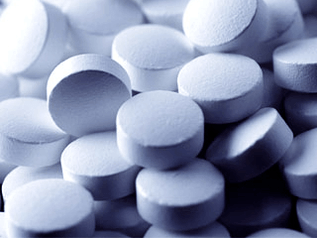
Prostatitis tablets are the basic and primary cure for any form of the disease. They contribute to the patient’s fastest recovery and their spectrum of activity focuses on all elements of the disease’s development.
When choosing anti-inflammatory drugs, the first thing to remember is that you need to be prescribed by a doctor. A trained professional who determines treatment on a purely individual basis, taking into account the interaction between tablets for prostatitis and other drugs prescribed for men, taking into account the side effects and the effect of the drug on the whole body.
Not only can the prostate gland disease itself cause painful feelings and psychological discomfort, but an incorrectly selected medication can also cause harm: an allergic reaction, impaired reproductive function, or an inadequate erection in humans, which is a symptom of impotence.
Medicines used for prostatitis are divided into the following main groups while taking them in combination:
- Antibacterial drugs.The doctor's first choice is to treat the disease, especially its acute form. It aims to destroy the pathogen of the disease, which is detected based on laboratory analyzes of prostate secretion. They must penetrate freely into the tissues of the prostate and cause high concentrations in the substance, so the course of antibiotics is at least 4 weeks; in case of severe pain, antibacterial drugs are administered intravenously.
- Alpha blockers.Prostatitis tablets from this group are for men who have impaired urination. They relax the smooth muscle fibers in the prostate and bladder, relieve sphincter spasms, improve urine and eye fluid outflows, reduce the number of urges, and reduce pressure on the bladder.
- Muscle relaxers.They have a similar effect to alpha-blockers, but target the perineal region, which is constantly increased in tone during prostatitis. Reduce pressure on the pool area, reduce pain.
- Analgesics.Relieves lower abdominal pain. The dosage should be checked by a doctor.
- Phytotherapeutic drugs.Based on natural herbs. They reduce the edema and inflammation of the prostate gland, prevent stagnation and restore the outflow of physiological fluids. Preparations based on pumpkin seeds, creeping palm fruit and saber are considered popular.
- Hormonal drugs.It aims to lower testosterone levels, which contributes to the proliferation of prostate tissue, normalizing the overall hormonal background.
- Soothing.Designed for patients who are depressed due to poor quality of life, including sex.
- Vitamins.Essential for the overall strengthening of the immune system, which is weakened by the disease and the treatment itself.
Essential Medications for Prostatitis and BPH
From a medical point of view, there is no best cure for prostatitis, which is obvious because this or that drug targets one or more causes of the disease, so only one form of the disease:
- Acute bacterial form caused by bacteria from the Escherichia coli groupAntibacterial drugs from the fluoroquinol group are needed. The
- chronic bacterial formusually heals within a few weeks because antibiotic therapy is ineffective in this form.
- The non-bacterial form of prostatitis, even considering that no infection has been detected, is still being treated with antibiotics as specialists have identified a reduction in pain syndromes in patients.
The best cure for prostatitis will vary from patient to patient, but many of the drugs most commonly requested in pharmacies to improve urination, metabolism, and prostate microcirculation are known from advertisements. They are most commonly prescribed for the treatment of chronic prostatitis and benign prostatic hyperplasia.
Prostate adenoma drugs are primarily androgens that facilitate urination by increasing the functional capacity of the detrusor.
Many medications exist for the treatment of prostatitis, including the treatment of prostate adenoma, but it should be remembered that such medications should only be taken as directed by a doctor so that self-medication does not lead to deteriorating health.
























